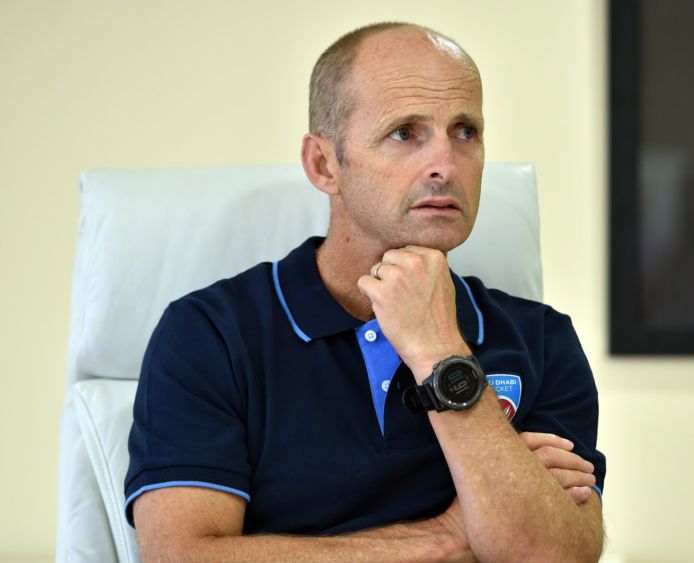Pakistan’s new white-ball coach Gary Kirsten may not have joined the team in person yet but he appears to be preparing for the magnitude of the challenge already. Speaking to talkSPORT, Kirsten said there was little doubt about the talent in the Pakistan squad, but also hinted at problems he had already picked up on.
“Everyone always talks about watching some of these players play on any given day and getting mesmerised by their abilities,” he said, talking to former England fast bowler Steve Harmison and broadcaster Neil Manthorp. “But the short time I’ve had in connection remotely with the team, one can pick up very quickly what the potential blockages are. And I guess it’s my role as a coach, to assist in unlocking the natural ability that they have.”
Kirsten, who takes over at a time of both on- and off-field flux in Pakistan cricket, said it was natural to expect negativity, suggesting the knock-on effects of poor on-field results seep into all aspects of the game.
Following a poor ODI World Cup, Pakistan lost 3-0 in Tests to Australia and 4-1 in T20Is in New Zealand. Then against a weakened visiting New Zealand team, Pakistan only managed a 2-2 draw before scraping past Ireland 2-1 this week.
During that time, Babar Azam was sacked as captain and replaced by Shaheen Shah Afridi, only for Afridi to be replaced by Babar a few weeks later. Off the field, Mickey Arthur was removed as team director with Mohammad Hafeez performing the role in Australia and New Zealand, while there have been three different PCB chairmen in the last year.
“I’ve been around the coaching circuit enough to know that pretty much any team environment that’s not winning, you will get factions. The fact is, it could be highlighted even more in certain cultures and environments. The one thing about being a coach of over 20 years now is that you get a little bit more thick-skinned. And that’s the one thing I did learn from Bob [Woolmer], by the way.
“He had a really thick skin by the end of his coaching career. Because you’re just trying to do as best a job you can, accepting the fact that when the team’s not doing well, there’s always going to be a whole bunch of criticism.”
Kirsten’s time with India should, in theory at least, prepare him for the administrative challenges of working with a cricket board in South Asia, and the wisdom of accepting there will be inevitable limitations on his powers. “I think my learnings over my three years with India was that there are some battles that you just absolutely not going to win. And then you just focus on the ones that you can win, and hopefully that’s enough for the team to do really well.
“It’s really important that you build relationships upwards. You need to work well with the people upstairs and within the confines of the board, and hopefully build a decent relationship so that they buy into your thinking as well.”
The most obvious example of this comes with the contentious debate around the captain Babar and his best use in the shortest format. Kirsten pointed to his recent innings against Ireland – a matchwinning 42-ball 75 – saying one of his goals was to find Babar the space to play with that kind of freedom more frequently.
“It [dependence on Babar] is not fair on any player,” Kirsten said. “He shouldn’t feel like he has to be contributing all the time to a team. I’ve been in touch with Babar. He’s done remarkably well and carries a lot of the weight of the team on his shoulders. What we will try to do as a coaching staff is to lift that a little bit and to realise he’s just one of a whole group of players and that he can free himself up to play with his natural talent.


